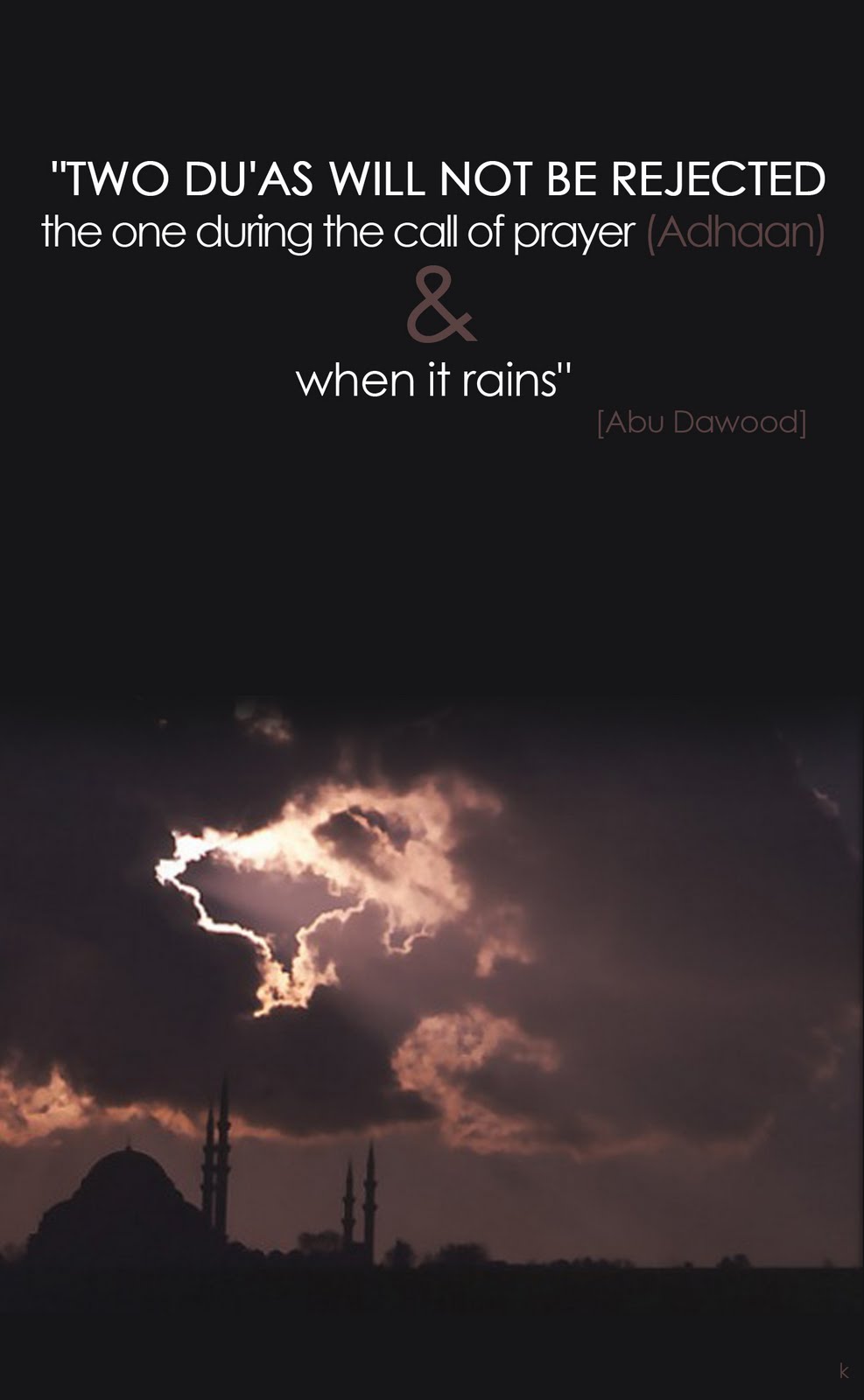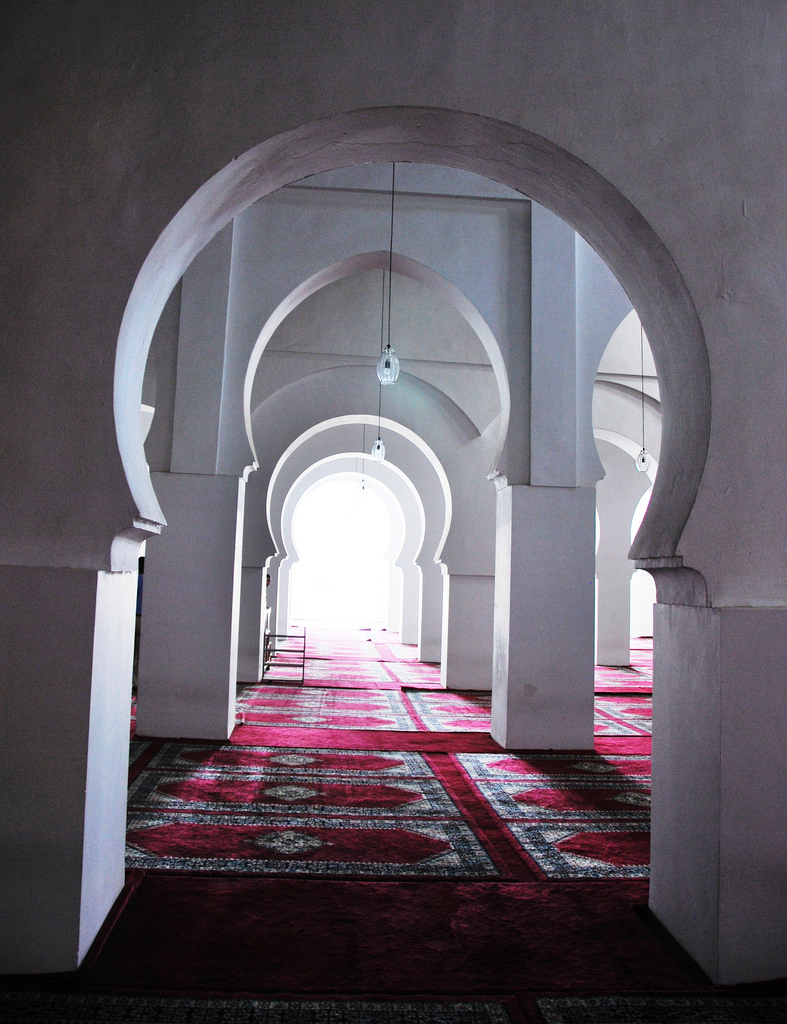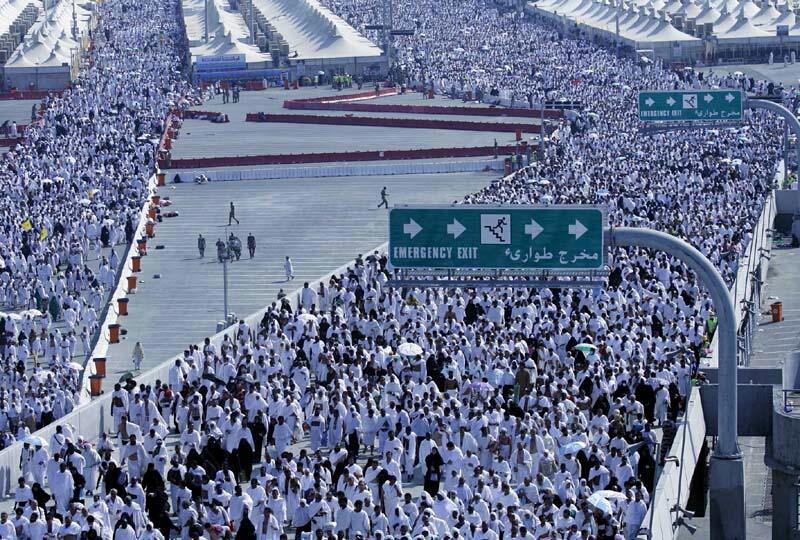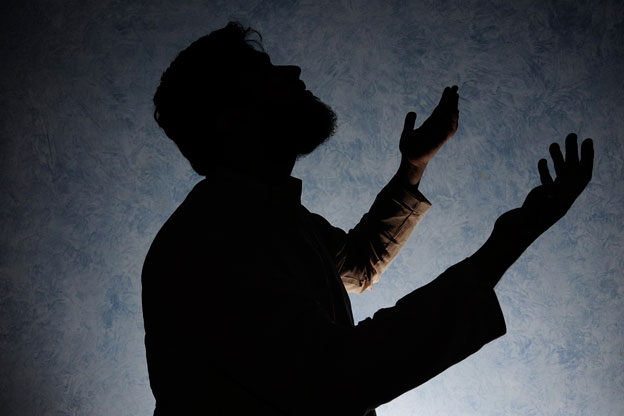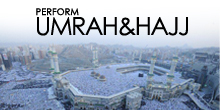
by Asma bint Shameem [ILoveAllaah.com Exclusive Writer]
Hajj is the most beautiful journey that you will ever undertake in your entire lifetime. And out of those blessed days of Hajj, the one that is the most important, the most crucial, is the day of Arafah, the 9th of Dhul Hijjah. For, it is here, in the vast plain of Arafah, that tears are shed, and sins are washed. And it is here that faults are redressed for those who ask Allah for forgiveness and offer sincere repentance for their wrong doings. Happy is the person who receives the Mercy and Pleasure of Allaah on this particular day. In fact, so important is this day, that if someone misses it, his hajj is not valid as the Prophet صل اللہ عليه و سلم said:
“Hajj is ‘Arafah.” (al-Tirmidhi–saheeh by al-Albaani).
Therefore it is of utmost importance that we make the most of this day and spend it as close as possible to the way of the Prophet صل اللہ عليه و سلم so that we can attain maximum benefit from this glorious day.
Here are some do’s and don’t’s of the day of Arafah:
1. Recite a LOT of the talbiyah
Do not forget to recite the Talbiyah when you leave Mina for Arafah and continue to do so through out the day of Arafah until the day of Eid. It was proven that the Prophet صل اللہ عليه و سلم continued to recite the Talbiyah until he had stoned Jamarat al-‘Aqabah (the large pillar) on the day of Eid. Some people forget that and thus miss out on this wonderful act of Ibaadah that can only be done during Hajj and Umrah.
What beautiful words they are…
Here I am O Allaah….at Your service….submitting to You, humbling myself to You….ready to make a change in my life….ready to please You….ready to leave everything except You. You are my Lord and I worship no one but You.
Think about the words and the connotations they carry….don’t just say them. Reflect on the meanings…Let the words come deep from your heart….from within your very soul, not just your tongue.
What magnificent words to say on such a majestic day….Subhaan Allaah!
2. Make dua: LOTS and LOTS of it!
This is the day you’ve been waiting for….the day of Arafah. This is THE DAY to make dua. If there was ever a day to make dua, this is that day. The Prophet صل اللہ عليه و سلم said:
“The best of du’aa’ is du’aa’ on the day of ‘Arafah.” ( al-Muwatta–hasan by al-Albaani in Saheeh al-Jaami)
This is the day you will pour out your heart, and empty your soul to the Lord of the worlds, your Creator, the One Who has given you every single thing you can think of. The One Who has invited you here on this honored day of Arafah, from half way across the world, as His guest.
Otherwise you wouldn’t be here. Otherwise you wouldn’t be here.
What an honor! And what a chance to have your duas accepted!
So go ahead. Ask. Stretch out those hands of yours in humble submission. Beseech and implore. He is Allaah, ar-Rahmaan, al-Kareem, the Most-Generous. Surely He will give you.
The best dua for this day:
The Prophet said: “The best of du’aa’ is du’aa’ on the day of ‘Arafah, and the best that I and the Prophets before me said is:
لا إله إلا الله وحده لا شريك له ، له الملك وله الحمد وهو على كل شيء قدير
‘Laa ilaaha ill-Allaah wahdahu la shareeka lah, lahu’l-mulk wa lahu’l-hamd wa huwa ‘ala kulli shay’in qadeer
(There is no god but Allaah alone, with no partner or associate; His is the dominion, to Him be praise, and He has power over all things).” (al-Tirmidhi–hasan by al-Albaani in Saheeh al-Targheeb)
3. Do plenty of istighfaar:
The Prophet صل اللہ عليه و سلم said: “There is no day on which Allaah ransoms more of His slaves from the Fire than the day of ‘Arafah. He draws close then He boasts about them before the angels and says, ‘What do these people want?’” (Muslim)
And you know what? Allah descends to the sky of the Duniya and He boasts about you to the Angels, on this day and says: ‘My slaves have come to Me, looking rough, from every deep valley hoping for My mercy, so if your sins were equivalent to the amount of sand or the drops of rain or like the foam on the sea I will forgive them. So go forth My slaves! Having forgiveness and for what or who you have interceded for.’ (at-Tabarani–hasan by al-Albaani)
Subhaan Allaah! Here is a chance of a lifetime to have all your previous sins forgiven, your record cleared…wiped clean as if you were a newborn…a second chance!
So think of all the sins you may have committed in your life, especially the major ones, make a list of them, (nobody has to see it except you) and ask the Only One Who forgives, al-Ghafoor, at-Tawwaab, to forgive you….urgently…. passionately.
CRY over your sins and don’t let anything stop those tears. Let it all out and plead with Him. Beg for His Mercy. Like a beggar begs….desperate…yet hopeful.
Make sincere repentance by
a) feeling regret and shame over those bad deeds,
b) resolve to stop them right away and
c) never ever to return to them.
These are the conditions of sincere tawbah. And all these records which were filled with sins will then be canceled out with His permission.
4. STAY AWAY from all innovations.
Obviously the closest we will be to the Sunnah of the Prophet صل اللہ عليه و سلم this day, the more likely that Allaah Subhaanahu wa Ta’ala will be pleased with us and accept it from us.
And anything that is not part of the Sharee’ah that the Prophet صل اللہ عليه و سلم brought, is an innovation in the deen and isrejected by Allaah.
It is something that Allaah is NOT pleased with and thus will not be accepted by Him.
As the Prophet صل اللہ عليه و سلم said:
“Whoever does any action that is not in accordance with this matter of ours (Islaam) will have it rejected.” (Muslim)
Imagine doing something that Allaah is not pleased with, on this glorious day?!! Imagine Allaah turning away from you and your Ibaadah!! Aoodhubillaah.
Surely, there is no one more unfortunate than the one who comes all the way from his home far far away, to Makkah for Hajj, who worked hard gathering his money, making all the arrangements, hoping for reward from Allaah, only to have it rejected because he followed bid’ah!
What a heavy, horrible loss indeed!
BEWARE: Included in the bid’ah are those printed papers with ‘formulas’ and ‘prescriptions’ to be read on the day of Arafah, that are sometimes circulated among the hujjaaj, telling you to read certain supplications one 100 times and certain ayaat one 100 times, picking specific ayaat and duas to be read a specific number of times.
Please, please stay away from such ‘prescriptions’ and ‘formulas’ even if it is supplications from the Sunnah or even ayaat form the Qur’aan.
Why is it wrong?
It is wrong because even though they may be ayaat from the Qur’aan or authentic duas from the Sunnah, yet it is NOT from the practice of the Prophet or the sahaabah that they said these specific duas and ayaat in this manner and a specific number of times, on the day of Arafah.
If it was good, surely the best of creation, the Prophet صل اللہ عليه و سلم, who knew how to worship Allaah the best, certainly would have done so himself and would have certainly told the sahaabah about it.
Yet, there are NO authentic reports that tell us that he صل اللہ عليه و سلم or the sahaabah did any of this.
One may read any ayaat of the Qur’aan, or one may use any of the Sunnah duas, not these specific ones only and one may read them without specifying the number of times they to be read.
There should be no restriction to a specific number or manner.
Just think about it. Would you want to risk doing something that you are not sure of this day?!!
Why not choose those acts of Ibaadah that are for sure, a part of the practice of our beloved Prophet صل اللہ عليه و سلم and the Sahaabah? Something that is established in our deen in the manner it was done, the times it was done and the places it was done.
Isn’t what the Prophet صل اللہ عليه و سلم did on his hajj, the best example to follow?!!
So if he صل اللہ عليه و سلمdidn’t read these ayaat and duas in this manner and count, we don’t do it either. And his is the best example to follow.
5. Do NOT read any nawafil prayers
The Prophet صل اللہ عليه و سلم did not pray any other prayers on this day except combining Dhuhr and Asr at its earlier time. There was no other prayer that he prayed this day. Rather he spent his time making dua. And if he صل اللہ عليه و سلم didn’t do it, that means that there is we shouldn’t do it either.
He صل اللہ عليه و سلم said: “Learn from me your rituals (of Hajj).” (Muslim)
The Ulama said: “The Messenger (sal-Allaahu `alayhe wa sallam) did not perform any supererogatory prayers on the Day of ‘Arafah after having offered Salaat az-Zhuhr and Salaat al-‘Asr combined and at the time of Zhuhr. And if it was legislated and good then he would have been more careful about performing them than us, and all good is in adhering to following his Sunnah.” (Fataawa al-Lajnah ad-Daa.imah lil-Buhooth al-‘Ilmiyyah wal-Iftaa).
What about salaat at-Tasbeeh?
Salaat at-Tasbeeh is not proven to be from the Sunnah according to the majority of the Ulama such as Imaam Ahmad, Ibn Taymiyah, al-Nawawi, ibn Qudamah, Ibn Uthaaymeen, etc.
Shaykh Ibn ‘Uthaymeen said: “Salaat al-Tasbeeh is not prescribed, because the hadeeth is da’eef (weak).”
Imaam Ahmad said there is no sound evidence for it.
Shaykh al-Islam Ibn Taymiyah said it is a fabrication, and he said that none of the Imaams recommended it.”
So if it is something that is not from the Sunnah, then why do it, especially on an important day like Arafah?
And even if some of the Ulama did regard it as something that can be done, realize that most of the Ulama say that it is not to be read. Now, for something that is doubtful, wouldn’t you want to leave it and worship Allaah in a way that is for sure prescribed in the Sharee’ah?
Would you want to risk your day of Arafah for something doubtful?
Didn’t the Prophet صل اللہ عليه و سلم say? “Leave that which makes you doubt for that which does not make you doubt.” (al-Tirmidhi–Saheeh by al-Albaani)
Thus it is best to leave it and engage in dua, dhikr, etc that is confirmed from the Prophet صل اللہ عليه و سلم
6. Keep yourself busy with Ibaadah. Do NOT waste time
Keep your self busy in the dhikr of Allaah, glorifying Him and being thankful to Him, sending blessings upon the Prophet صل اللہ عليه و سلم and in dua and istighfaar.
Don’t let a second, yes, a second go by when you are not remembering Him.
This is the way to keep yourself busy this day, with dua, istighfaar and tasbeeh, (“Subhaan Allah”), tahleel (Laa ilaaha ill-Allaah), tahmeed (al-hamdu Lillah), takbeer (Allahu akbar) and Talbiyah, calling upon your Rabb and beseeching Him, until the sun sets.
Please DO NOT waste your time in things like unnecessary talking, mingling, joking, or just passing the time, things that will be of no benefit to you that day.
Some examples of how people waste time on this vital day.
Taking showers
Some people waste precious time taking showers and more than that…waiting in the long lines to take showers!
Don’t you know that Allaah knows that you are dirty and disheveled? In fact Allaah boasts about you and your dustiness to His angels.
“Allah expresses His pride to His angels at the time of ‘Ishaa’ on the Day of Arafah, about the people of Arafah. He says, ‘Look at My slaves who have come unkempt and dusty.’” (Ahmad–saheeh by al-Albaani).
It’s ok to be a little dusty. That’s the whole purpose of Hajj. To remind ourselves that we will be leaving all the luxuries of this life behind…that we will be resurrected like this, dusty and disheveled one day, that what really matters is what our deeds are like in front of Allaah, not our outward appearances.
Waiting in long lines for food
Some people stand literally for an hour just to get ‘hot food’. Subhaan Allaah. This is Arafah!
You never know when you will get a chance like this again. This is the time to ask Allaah’s forgiveness, to have your sins washed away. This is not the time to eat and drink. That can be done later.
Now don’t get me wrong. I’m not saying don’t eat or drink that day. You may eat or drink. All I’m saying is not to stand in lines for long periods of time for food or for anything else.
If one day we eat ‘cold food’ who cares, right? Just utilize your time to the best of your ability.
Climbing up Mount Arafah (Jabal ar-Rahmah)
Some people waste so much time and go to great lengths trying to get to Mount Arafah thinking there is extra reward in touching it, praying there or standing there. There is no such thing. The Prophet صل اللہ عليه و سلم did not climb this mountain or instruct anyone to do so, and he did not approve of anyone climbing it either.
Shaikh Ibn Uthaymeen says: “…climbing this mountain is not prescribed; rather the Messenger of Allah (blessings and peace of Allah be upon him) said, when he stood behind it on the eastern side: “I have stood here and all of ‘Arafah is the place of standing.” It is as if he (blessings and peace of Allah be upon him) was indicating that each person should stand in his own spot and not push and shove in order to reach the place where the Messenger (blessings and peace of Allah be upon him) stood.” Majmoo’ Fataawa Ibn ‘Uthaymeen)
Similarly, don’t waste your time trying to get masjid Namirah
Yes, although it is Sunnah to pray at Masjid Namirah, it is extremely crowded and usually far from some of the tents. Yet some people go through a lot of hardship and waste a lot of time trying to get there because they think that they have to pray Zuhr and ‘Asr there. This causes them a great deal of hardship and causes crowding etc. Some even get lost and lose even more time. The whole of Arafah is good to pray and stand and make dua. The important thing is to utilize our time there to the maximum and worship Allaah so that He will forgive us.
Once Umar ibn ‘Abdul-‘Azeez delivered a Khutbah at Arafah and said, “O people, you have come from near and far distances, exhausted your camels, and worn out your clothes. The winner today is not the one whose camel is ahead, but rather it is the one whose sins are forgiven. Praise be to Allaah – the Lord of the worlds.”
May Allaah enable us to worship Him in the best manner possible on the Day of Arafah and every other day. May He accept our Hajj and forgive us. Aameen.
READ FULL ARTICLE


